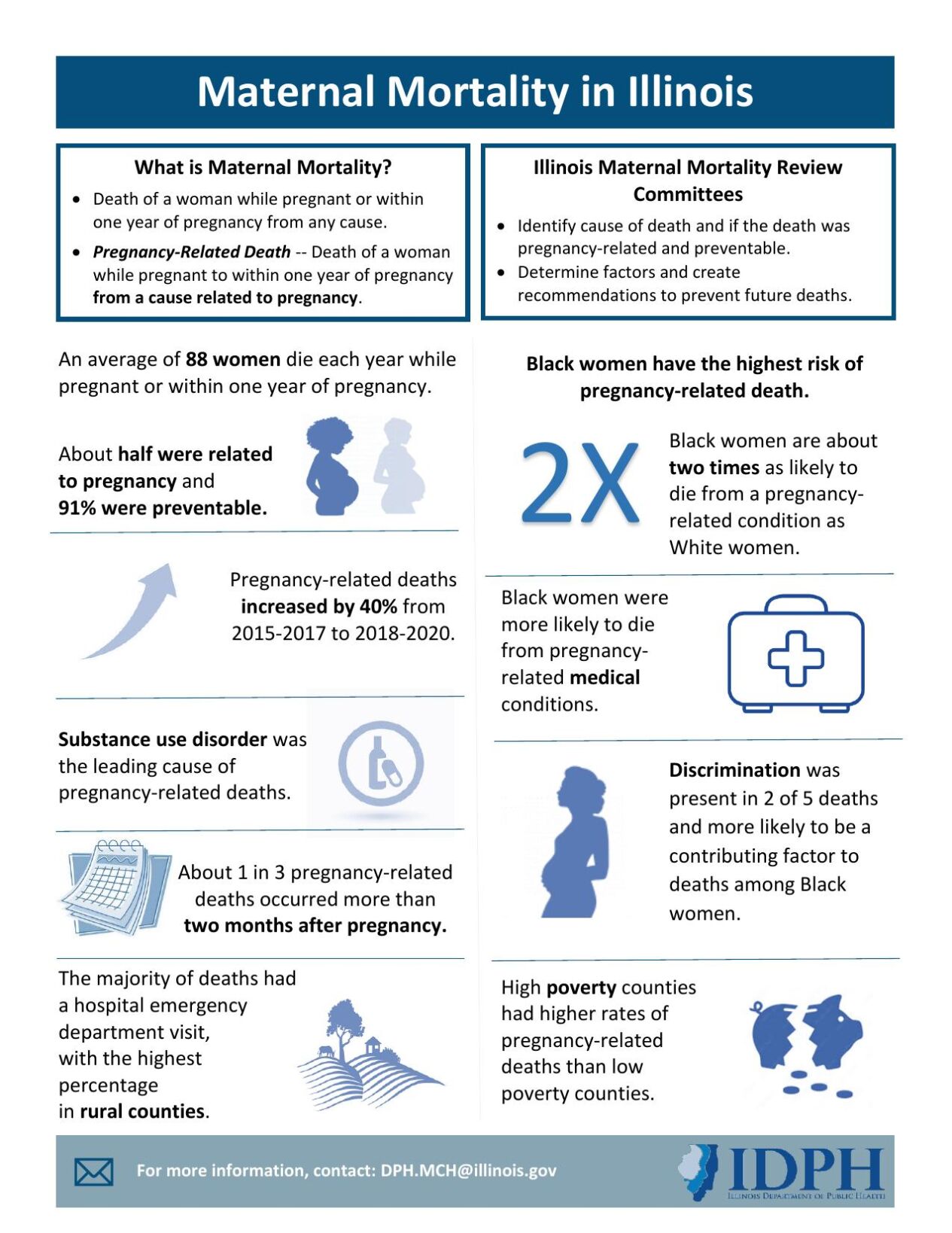SPRINGFIELD, Ill. (WAND) — The Illinois Department of Public Health released their Maternal Morbidity and Mortality Report, which analyzes maternal deaths that occurred between 2018 and 2020. The report shows some troubling factors causing deaths in the state.
The report states that substance use disorder was the leading cause of pregnancy-related deaths in the set time period. Providers say this number could be impacted by the COVID-19 pandemic, but has been an issue since before 2020.
"It is very sad to know that this is a reality," said Representative Robin Kelly, who represents Illinois' 2nd District in the US House of Representatives. "I think that lack of access to health care, you may have a problem, but you may not be able to go in for mental health or physical health because you live in a health desert. And then you never know what has happened to people's lives that have caused them to become addicted."
Related Links
- Illinois congresswoman's proposal to improve maternal mortality rates
- Infant mortality rate rises significantly for the first time in two decades
Representative Kelly said substance use is just the tip of the iceberg when it comes to preventable deaths in the state. She also said lack of access to care, race, and preventative care play a part in mortality rates. The report states that Black women have the highest risk of pregnancy-related death, and Black women are about two times as likely to die from a pregnancy-related condition as white women.
"It definitely has to be a priority and we have to get to women, even before they get pregnant, and when they go to their OBGYN to talk about these issues so that they're in the best shape they can be or if there are issues that they can be dealt with, perhaps in a preventative way or at least early on in the pregnancy," said Representative Kelly.
In Illinois, 91% of pregnancy-related deaths were preventable. That number is 84% on a national scale.
In September, Kelly created the CARES for Moms Act, which increases healthcare access in rural areas, and improves the education pregnant and postpartum women receive. Providers say these initiatives are the first step in reducing pregnancy-related fatalities.
"A woman who is in rural areas, whether she is of color or not, might have to drive 30 minutes or longer to get to a healthcare provider or to get to a facility that can actually deliver her baby," said Dr. Dona M. Perry, Medical Director for Blue Cross Blue Shield of Illinois. "Access is a big problem and barrier to good healthcare and maternal outcomes."
The report also found that pregnancy-related deaths increased by 40% from 2015-2017 to 2018-2020. Discrimination was present in 40% of deaths among Black women.
Click here to read the full report.
Copyright 2023. WANDTV. All Rights Reserved.

